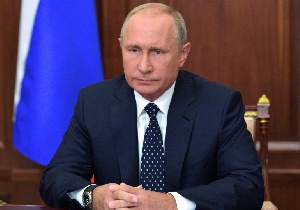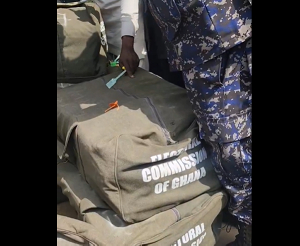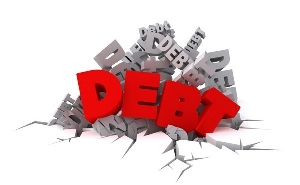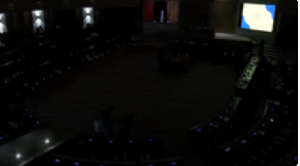If you’re Vladimir Putin, sitting at the top of the Kremlin with a firm grip on Russia’s nuclear button, life is likely pretty simple. In the world of global power plays, nuclear weapons have always been your trump card. And why not? The world has known for decades that Russia’s nuclear stockpile is vast and formidable. If things go wrong on the battlefield, just threaten to “wipe out” the enemy, Ukraine, the West, anyone, after all, who dares challenge the man who can annihilate the planet in an instant? That’s the illusion of power, right?
But what if, just one morning, Putin wakes up to the most surreal, unimaginable news: Russia has been stripped of its nuclear capabilities? No more ICBMs, no more warheads, no more apocalyptic threats. Just a few hours earlier, Russia’s nuclear arsenal was firmly in place, poised to send a chilling message to the world, but now? Gone. Just like that. The unthinkable has happened.
And what’s more, it wasn’t some rogue intelligence agency, nor a secret Western plot, but a bizarre and almost comical twist of fate, perhaps even a botched vodka-fueled government decision. Maybe, just maybe, the “unbreakable” nuclear silos, on which Russia has staked its national pride, have turned out to be far more fragile than Putin ever realized.
Suddenly, the once indomitable Russian leader finds himself in a paradox. There he is, sitting in the Kremlin, looking out over Moscow’s skyline, and feeling... well, a bit like a kid who’s been caught showing off with a fake Rolex. The one thing that made him stand out on the global stage, the one thing that has, for years, made adversaries tread lightly, is gone.
The Illusion of Invulnerability
In this brave new world, Putin’s naked reliance on nuclear weapons begins to reveal its true fragility. For all the bluster and bravado about Russia’s ability to “win” in a nuclear standoff, the truth becomes painfully clear: the constant boasting about these weapons was never a sign of strength, but of insecurity.
For decades, Russia’s nuclear arsenal has been Putin’s favourite toy. From the ominous threats of “escalation” to his endless winks at potential use, the message has been clear: “I have the power to destroy you, and I am not afraid to use it”. It’s a message designed to intimidate, to keep the world in check, and to reinforce the notion that Russia’s power lies not in diplomacy, economic might or alliances, but in the sheer destructive capacity of its military.
But what happens when that power is taken away? What happens when the security blanket turns out to be riddled with holes?
Without his nuclear arsenal, Putin’s geopolitical clout becomes akin to a magician who can no longer pull rabbits out of his hat. The West would no longer have to tremble in fear when his threats of nuclear destruction arise. Ukraine, with the support of NATO and the EU, would feel emboldened, not diminished. Russia would suddenly be reduced to one of the world’s largest nations, yes, but one without the means to back up its grandiose ambitions. The delicate balance of power Putin so cherishes would no longer depend on fear; it would depend on something altogether more difficult to manipulate: diplomacy, alliances and the gritty reality of international politics.
The Nuclear Hypocrisy
Now, let’s be clear: the absence of nuclear weapons would not render Russia a powerless nation. It is still a global player, an economic and military force, albeit one considerably less menacing without the nuclear trump card. But here’s the rub, Putin’s image as a tough, cold-blooded, chess-master strategist would crumble. He would no longer be the enigmatic figure who could threaten to destroy entire cities with a mere flick of his wrist. Instead, he would be forced to reckon with the limitations of conventional warfare and the ugly reality of military tactics without the game-ending ace up his sleeve.
What would Putin have left to rely on? The answer, ironically, is the very thing he has neglected: human capital, alliances, and the long-term strategic investments that are the bedrock of true power. But of course, these are not things Putin has cultivated; his governance has been a masterclass in exploiting fear and division, relying on military might rather than building lasting economic and diplomatic ties.
Imagine, for a moment, a world where Putin can no longer brandish the nuclear threat. He might find himself reaching for new tactics, diplomatic ones, perhaps or even economic ones. But these avenues, so familiar to the world’s true superpowers, might be a little too foreign to him. After all, Putin has spent the last few decades perfecting the art of leveraging his nuclear stockpile, not winning over allies or creating a positive global reputation. His ability to maintain Russia’s power has been a house of cards built on the delusion that nuclear deterrence is the ultimate force multiplier.
The Weakness of Strongmen
This is not just a critique of Putin’s reliance on nuclear power; it’s a broader commentary on the nature of geopolitical strength. The world has always been wary of leaders who mistake their military capabilities for invulnerability. These leaders forget that no nation’s power is permanent. Empires rise and fall; military might, while essential, is never a guarantee of victory. Putin’s excessive reliance on nuclear weapons reflects the fragile nature of any power built solely on fear and intimidation. In the long run, it’s just another illusion.
One only has to look at history to see that this is nothing new. Napoleon Bonaparte’s empire crumbled, despite his superior military capabilities, because he failed to account for the resilience of others and the shifting tides of history. The same can be said for Adolf Hitler, whose obsession with domination was ultimately his downfall. And now, in the 21st century, we’re witnessing another example of how reliance on overwhelming force without diplomatic savvy or respect for the international order leads to stagnation and self-delusion.
A New World Order, Without Putin’s Bomb
If Putin wakes up to a world without nuclear weapons, it might just serve as a rude awakening, a reminder that nothing in geopolitics is permanent. Today’s “invincible” nation can become tomorrow’s pariah. The nuclear threats that once seemed so daunting would fade into the background, while a new reality would set in: Russia, like every other nation, is vulnerable to the currents of history.
Perhaps, in this post-nuclear world, Putin might discover that true power doesn’t lie in the ability to destroy, but in the ability to build. That military might can only take you so far, and true influence comes from alliances, investments and a commitment to peace. In the end, this hypothetical scenario serves as a timely reminder to Putin, and the world, that the game of power is ever-changing, and those who rely too heavily on one form of leverage, be it nuclear weapons or military dominance, are bound to find themselves on the wrong side of history when the winds shift.
For now, though, let’s return to our reality. Putin may still have his nuclear weapons, but that doesn’t mean he’s invincible. A time will come when the world will no longer be impressed by his threats. And when that time comes, let’s hope he’s learned that power, like the best of his weapons, is fleeting.
The writer is a journalist, columnist specializing in international affairs, PR expert, and journalism lecturer with a PhD in Journalism and expertise in global diplomacy and foreign policy.
Opinions of Friday, 29 November 2024
Columnist: Dr. Richmond Acheampong



















